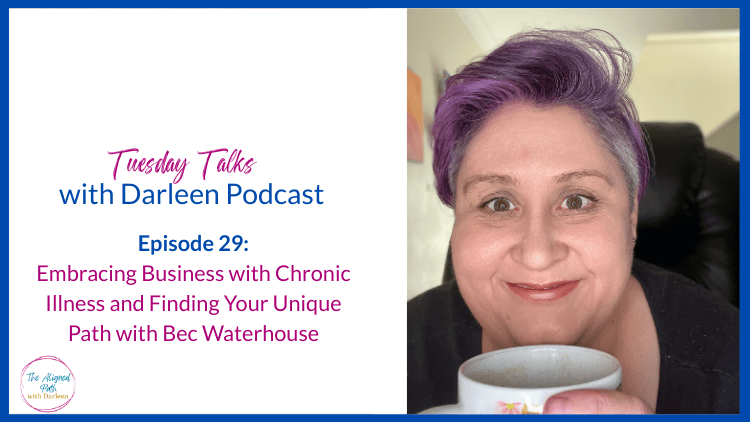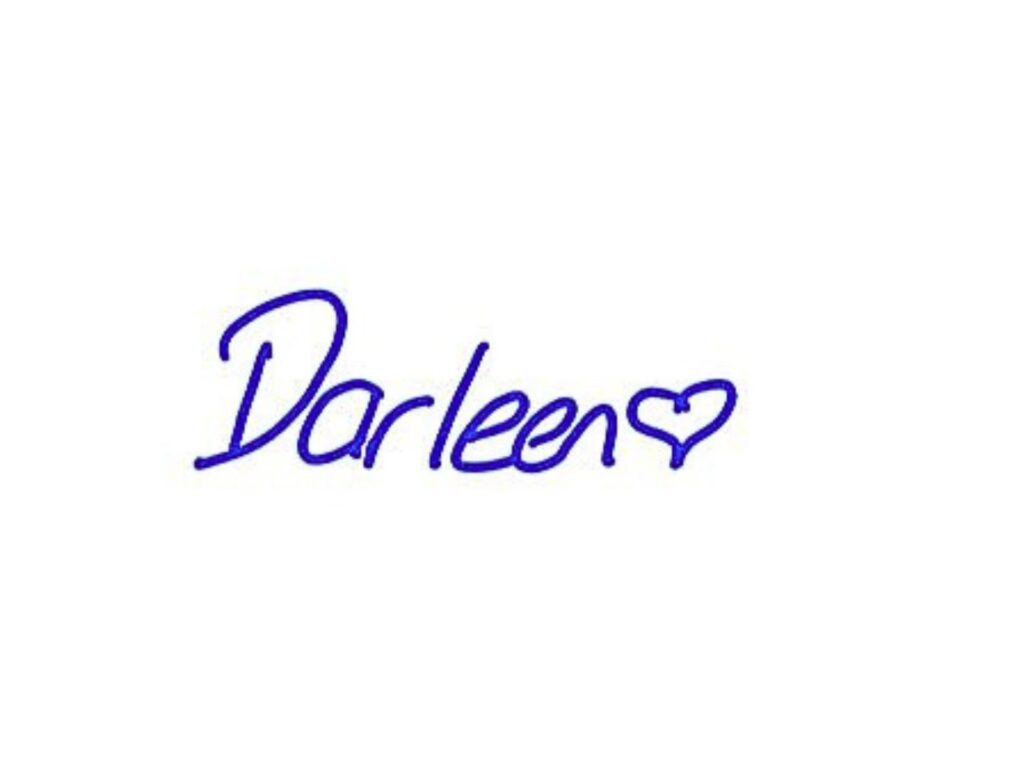Running a business while navigating chronic illness isn’t just about pacing or mindset, it’s about complete energetic redefinition. In this conversation, the focus moves into the lived experience of burnout, recovery, clarity, and resilience. Bec Waterhouse offers grounded insight into how the pressure to succeed at all costs can disconnect entrepreneurs from their needs, their intuition, and ultimately, their purpose.
This isn’t about pushing harder. It’s about building a business that honours the body, the brain, and the nervous system. It’s about moving beyond hustle and into a space of sustainable rhythm. Through her own lived journey with autoimmune conditions, burnout, and business evolution, Bec brings practical tools and deep truth to what it really looks like to run a business as a neurodivergent, chronically ill woman.
The key isn’t about working more. It’s about working in a way that aligns with energy, emotion, and personal integrity.

EPISODE 29: Listen using the player below, or click the links to your fave platform to subscribe and listen over there:
Redefining the Hustle
The mainstream business world still glorifies hustle culture, early mornings, endless content creation, massive launches, and consistent visibility. But for those with chronic illness or neurodivergence, this model leads quickly to burnout. Bec’s story begins here: doing all the “right” things, following business gurus, and burning out hard. What followed was the realisation that the rules of online business weren’t made for bodies like hers.
There comes a point when the question shifts from “How can I keep up?” to “What actually works for me?” This is the moment when business becomes sustainable. When self-awareness replaces comparison. And when rest stops feeling like failure and starts becoming a vital part of the process.
Creating a business that supports the body, rather than drains it, requires dismantling internalised ideas of success. It requires letting go of the fantasy that everyone can scale fast or earn six figures in 30 days. And it begins with asking what kind of life is being created, not just what kind of income is being generated.
Finding Your Own Version of Success
Success doesn’t look the same for everyone. For some, it’s about building a team and scaling to seven figures. For others, it’s about making just enough to stay home, manage symptoms, and contribute in a way that feels good. The problem is, so much of online business culture doesn’t leave room for that nuance.
The constant flood of “laptop lifestyle” ads and transformation stories can feel gaslighting for those living with illness or navigating trauma. These messages create unrealistic expectations, and often lead to shame, frustration, and doubt. What’s rarely acknowledged is that these overnight success stories often come from privilege, past experience, or access to capital.
Bec breaks this down clearly. Business is either built with time and energy, or with money. And if someone is paying with time and energy, especially while managing a chronic condition, then the timeline must be different. It’s not a failure. It’s a different currency. And recognising that is essential.
- Goals can be based on emotional needs, physical capacity, and lifestyle, not just revenue
- Comparing progress to others with different circumstances erodes confidence and clarity
- Many visible success stories leave out key variables like past networks, team support, or financial backing
- Daily goals like brushing teeth or posting one piece of content may represent massive wins
- Allowing progress to be nonlinear supports emotional regulation and long-term sustainability
Emotional Truth and Energetic Reality
Acknowledging emotional reality is a powerful part of business integrity. Days will come when energy is low. When pain or brain fog sets in. When depression makes even basic tasks feel impossible. And on those days, the measure of success changes.
Rather than forcing through, the question becomes: What is the bare minimum I can do today that still keeps my business breathing? That might mean a single social post from a pre-prepared library. It might mean rescheduling a call. It might mean doing nothing at all. And none of it is failure.
Bec brings this into focus by highlighting how business success is often built on invisible foundations. Months of showing up without visible results. Years of behind-the-scenes learning. Long stretches of quiet, followed by unexpected growth. It’s not always glamorous, but it is real. And in the world of chronic illness, realness matters more than performance.
Systems, Simplicity, and Self-Support
Having a chronic illness requires systems that reduce decision fatigue and emotional load. But those systems don’t have to be complex. In fact, the simpler they are, the more likely they are to be used. From cloud-based content libraries to repeatable social post frameworks, self-support begins with reducing the amount of energy it takes to be visible and consistent.
Tools like Trello, Google Docs, and content repurposing software can allow a business to run even on the hardest days. They allow visibility to continue without requiring live energy. They hold space for recovery. And they allow clients to still feel supported even when the business owner is conserving energy.
Self-support also means being able to say no. Rescheduling a client session when energy is too low. Changing direction when a plan no longer fits. Building in spaciousness so that creativity and rest have room to coexist. These are not indulgences. They are strategies.
Final Reflections
Business doesn’t have to look like anyone else’s. And it shouldn’t. Especially when chronic illness, disability, or neurodivergence are present. What matters most is not how fast things grow, but how well they support the person growing them.
This is about creating a business that aligns with capacity, values, and truth. A business that leaves room for bad days and doesn’t punish rest. A business that holds emotional honesty at its core, and recognises that success can be quiet, steady, and deeply personal.




